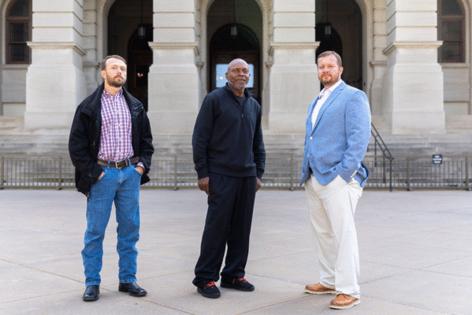Georgia House revives hope for new process to compensate people wrongfully convicted
Published in News & Features
ATLANTA — The clock is running out for six men who’ve been exonerated of crimes the courts now say they didn’t commit to receive compensation from the state for the decades they spent in prison, but an effort to stop this from happening in the future gained new life this week.
An effort that aims to standardize the compensation process for people who’ve been wrongfully convicted was tacked on to Senate Bill 429, a bill that would regulate small businesses, by House members on Tuesday and sent to the Senate.
A version of that bill, sponsored by Atlanta Democratic state Rep. Scott Holcomb, stalled in the Senate last year.
In the past two years, four state representatives have filed resolutions on behalf of the six men to compensate them between $910,000 and $1.8 million. The House has overwhelmingly passed all six resolutions.
And all six have stalled in the Senate. Four hung up in Senate committees last year and were not revisited this session. The most recent, House Resolutions 901 and 902, never received a Senate committee hearing.
“Should this pass the Senate and should the governor sign it, then these people who probably lacked hope for decades, maybe, just maybe, we might do something to help make it right,” Holcomb said Tuesday.
The six men whose resolutions would need to pass before the Legislature adjourns on Thursday would be eligible to apply for compensation through the new process, Holcomb said.
It’s unclear whether the measure will get support from the Republican majority in the Senate. Senate Majority Whip Randy Robertson of Cataula said he thinks the system has been “hijacked” by organizations such as the Georgia Innocence Project, which uses DNA evidence and research to clear people’s names.
“They’re confusing exoneration with cases that are sent back,” said Robertson, a former sheriff’s deputy who led the effort to stop the legislation last year. “If a district attorney chooses not to retry a case because of a technicality, that’s not exoneration, that’s a technicality. If there’s not evidence that shows they’re not guilty of a crime, that’s not exoneration to me.”
The two chambers have tried to reach a compromise in recent years, but each comes from a vastly different view.
...continued
©2024 The Atlanta Journal-Constitution. Visit at ajc.com. Distributed by Tribune Content Agency, LLC.







Comments